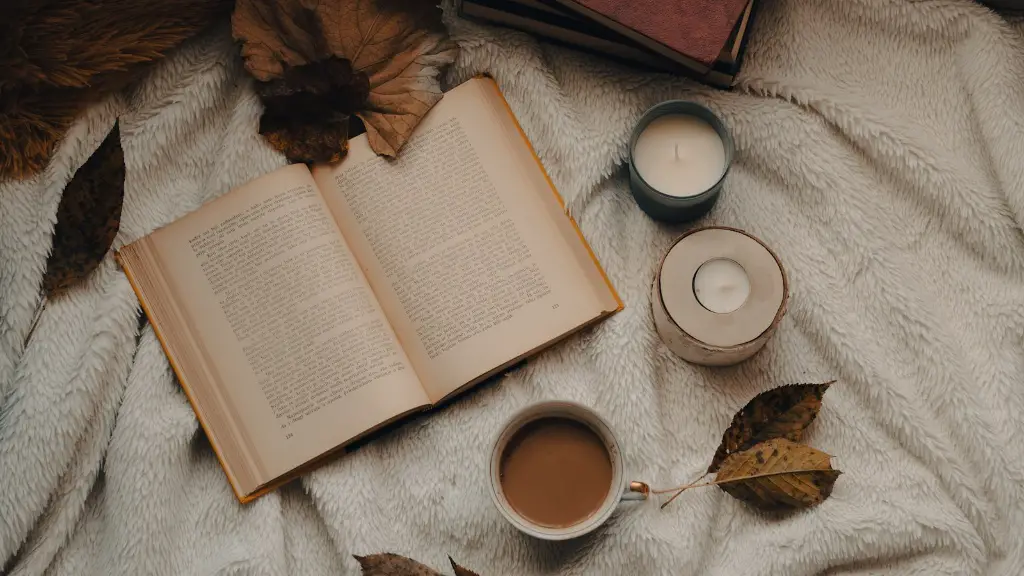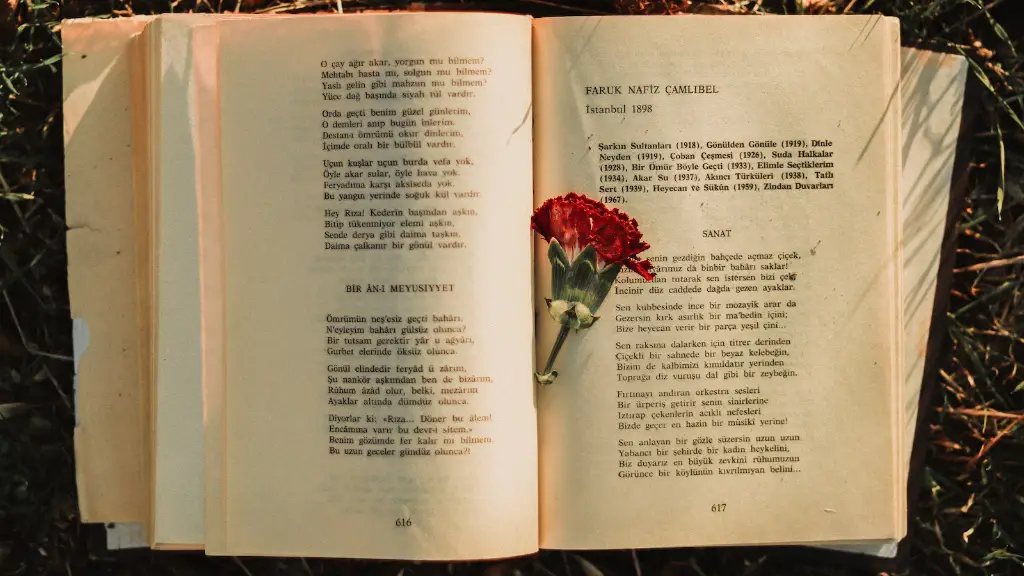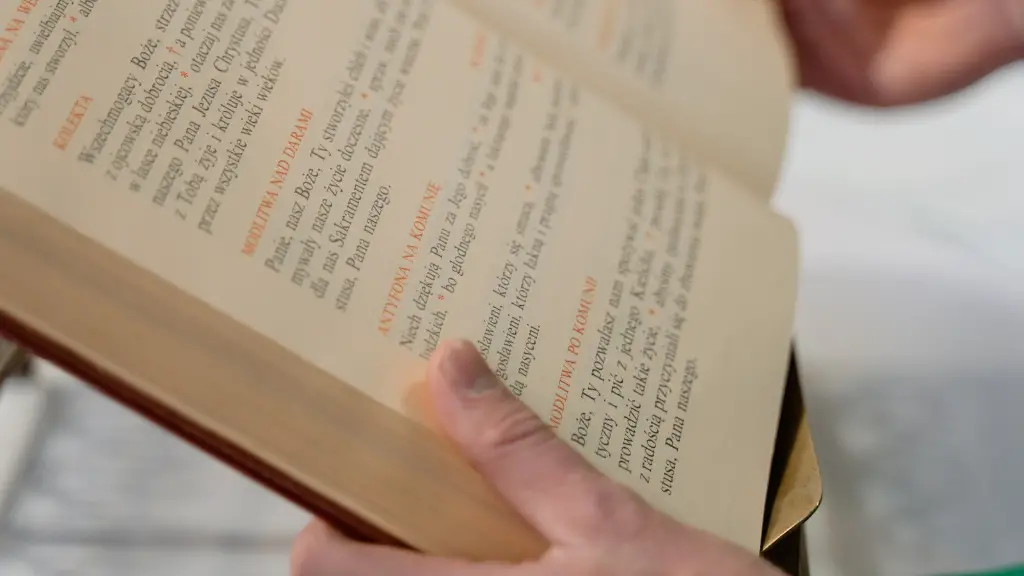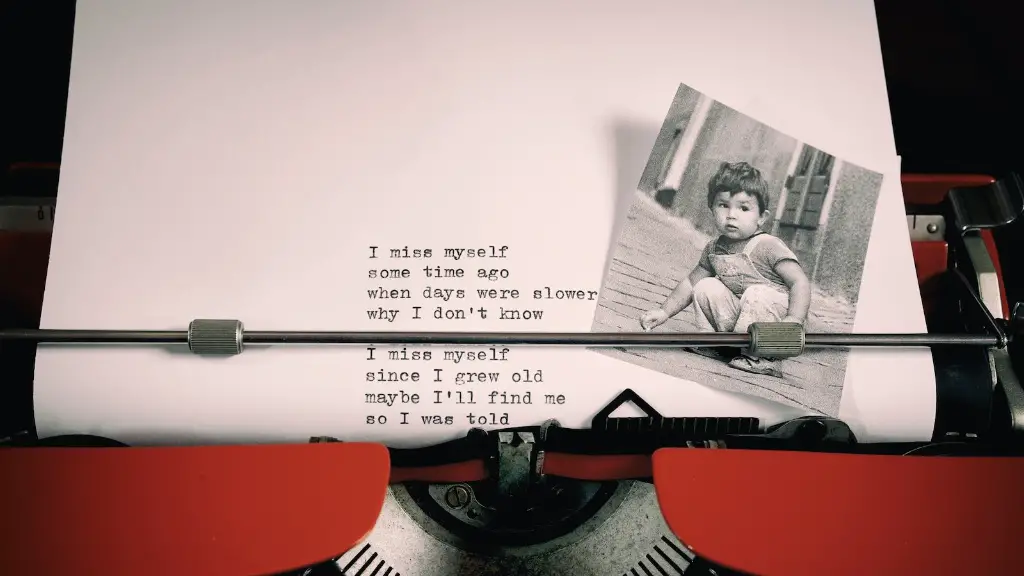Articulating your thoughts and emotions through words is no easy feat, but for those seeking to master the craft of poetry, the reward and satisfaction it brings is well worth the effort – and practice. If you yearn to create beautiful and captivating lines of verse, here are a few tips on how to become a better poetry writer.
Having a firm grasp of the fundamentals of grammar and spelling is key. For anyone writing any type of literary work, a good, solid understanding of grammar and spelling usage is essential. Not only should you strive to create a flowing, thought-provoking piece, but you should also strive to construct words and phrases that are grammatically and syntactically correct. This can be achieved by re-reading what you have written and, if need be, querying each line with questions such as “Does this sentence make sense? Is this sentence in the correct tense? Does this phrase sound natural?”.
In addition to having an understanding of grammar and spelling, doing research on the type of poetry you are writing is equally important. Before constructing a poem, it is important to research and understand the rules, elements, and devices typically used in the type of poem you are creating. Whether you are creating an epic poem or a sonnet, doing the necessary research is essential so that you can adequately craft a poem with a clear and interesting narrative.
Finding a muse or a source of inspiration is also integral. Whether it be a special person, place, object, or event, it could be helpful to have a specific muse or idea that gives you a sense of purpose, makes you feel something, or helps you galvanize your creativity.
Do not be afraid to challenge yourself and think outside the box. Use poetic devices such as similes, metaphors, hyperboles, and onomatopoeia and literary devices such as alliteration and personification, to creatively express your thoughts and feelings. You can also channel different forms of creativity such as photography, music, and painting. These creative outlets can serve as an extension of your writing and provide a way for you to explore and play with your words in new ways.
Finally, do not be afraid to fail. Writing is a process of trial and error and some of your poems may not turn out the way you expect them to. However, this is part of the journey and your failures should not discourage you but rather motivate you to keep writing. Simply put, the more you write and practice, the more skilled and accomplished of a writer you will become.
Finding Advanced Poetry Options
Experienced poetry writers often look for more complex and intriguing forms in which to write. A set form is usually the best way to challenge your existing knowledge base, which can result in more inspired poetry. If you are interested in discovering poetry forms that require greater skills, numerous resources exist.
Books about poetry often have discussions about the more challenging forms. Literary journals, depending on the type that you read, will have articles about the more difficult forms of poetry, as well as samples of different styles. Look for articles and reviews in the journals of professional poets, as they often discuss such forms.
Online resources are also available to guide you toward the more complicated forms. Many websites exist to help guide you in understanding and appreciating different forms of poetry, from the sonnet to the sestina, from haiku to villanelle. Each has its own rules and guidelines, but the resources available online can help you make sense of the different options, and often provide sample poems as well.
Exploring Rhyme Options
Rhyme is a popular skill to focus on when learning how to become a better poetry writer. Finding the right rhymes to accentuate the beauty and intricacy of your poem can be difficult, but is a necessary tool in the poetic trade. It may be a daunting process to start experimenting with rhyme if you’re a beginner, but there are various rhyming techniques that can help you find the right ones.
First, you should be familiar with the perfect rhyme, where two words have the same ending sounds. Then, there is what is known as the slant rhyme, which is when the ending sounds are similar but not identical, like “blue” and “glue”. Another popular technique is exploring the use of homonyms — words that are spelled differently, yet pronounced the same. Experimenting with these rhyming techniques and exploring the use of new words can help to find more suitable and interesting rhyming words for your poem.
In addition to perfect rhyme, slant rhyme and homonyms, end-rhymes can also be effective. This is when the entire last line of the verse has the same sound. While you can use any of the techniques mentioned, the important thing to remember is to practice meticulously. Finding and using the right words that help bring your poem alive is a skill that requires patience and imagination.
Tapping into the Creative Writing Process
Once you’ve done the necessary research and found the right rhymes, it’s time to take a dive into the creative side of poetry writing. While creativity can’t be forced, there are various things you can do to unearth it and let it run free. Before you start writing, it is often helpful to set the mood and capture the inspiration that comes to you.
Take a few moments to free your mind of any distractions and just allow your thoughts to wander. Creating a peaceful and conducive space can help generate constructive, creative ideas for your poem. It could be something as simple as walking in nature, having a cup of tea, or listening to your favourite song. Find something that encourages your creativity and get comfortable—it’s time to explore your thoughts, and write them down.
Putting your Story Together
Once you have some poems written down, it is essential to go back and review and edit. Many poets find that it’s a helpful practice to read their poems out loud. By doing so you can detect how a certain phrase or line may sound awkward, which often helps you to better modify and construct your writing. In addition, reading your lines out loud can also help determine whether or not all of the verses flow together naturally and create the desired effect.
For more complex or narrative poems, it is essential to pay attention to the context. Ask yourself if all of the lines are creating the story you envisioned and if you have effectively conveyed your message. Re-reading your draft, making the necessary revisions and ensuring that it all falls into an overall, coherent narrative is an important side of the poetry writing process.
Seeking Feedback and Critiques
In order to become a better poetry writer, it can also be helpful to seek out feedback from other experienced poets. Consider joining online poetry groups and share your writing among fellow poets and connoisseurs of the craft. Be sure to be open to critiques and suggestions, as this is often how you adjust and improve your writing. Constructive criticism can be an invaluable resource to growing as a poet.
You can also look up public readings and events. Attending a public reading or event gives you an opportunity to engage with the creative community and get a better sense not just of the craft, but of what people want to read. This can in turn help you gain a better understanding of the intended purpose of each poem and how it could be improved.
Writing Everyday
If you want to become better at any craft, consistent practice and time is key. As Nike says, “just do it”, and don’t be hard on yourself if the first poem or twenty aren’t ‘perfect’ the first time. Find the joy in the writing process and don’t think of it as a task. Even just writing a few lines of poetry a day can make a difference. Get creative, explore and find the joy in poetry writing, and with time and patience you will create something beautiful.




